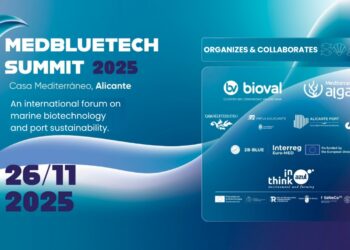Fish and hormones: what you need to know about modern aquaculture – Hormonal substances are used in fish farms to promote reproduction. This technical choice brings advantages, but deserves attention due to its environmental and health implications.
When we talk about farmed fish, we often think about the quality of their feed, their origin or the sustainability of the farm. Few people know, however, that many aquaculture facilities use synthetic hormones to stimulate fish reproduction. These substances mimic natural hormones, the most commonly used being an analogue of GnRH, the hormone that regulates reproductive activity.
This practice is common in farms breeding sea bream, sea bass, salmon and other species, where it is used to artificially induce sexual maturation, facilitating the production of eggs and sperm.
In nature, fish reproduce at specific times of the year, following seasonal cycles. In a farm, however, this timing can create difficulties: long waiting times, difficulties in synchronising production and unpredictable results.
To overcome these limitations, farmers resort to hormone injections that “push” the breeders to activate the reproductive process even out of season. This allows for better planning of births, optimising timing and improving the economic yield of the farm.
These hormones are not administered to fish for slaughter, but only to breeding stock. They do not accumulate in muscle tissue, i.e. the part that is normally eaten.
When practices are carried out correctly and in accordance with European regulations, there is no known risk to human health. However, problems can arise in the event of irregularities, such as incorrect dosages, failure to comply with withdrawal periods or the use of unauthorised products. In such cases, there is a risk that hormone residues may remain in the fish.
The use of hormones in aquaculture can also have an impact on aquatic ecosystems, especially if treated fish or wastewater are not managed properly. Some studies have reported that traces of hormones released into the environment could interfere with the reproduction of other species, altering the delicate balance of marine habitats.
There is also an ethical aspect to consider: forcing fish to reproduce can cause them physiological stress, and it is important that any intervention is as respectful of their welfare as possible.
At a time when demand for fish is constantly growing and marine resources are becoming increasingly scarce, aquaculture can be a solution. But it must be an intelligent, ethical and responsible solution.
However, consumers have the right to be informed and to demand that the fish supply chain be transparent, traceable and controlled. Only in this way can we guarantee safe and sustainable food, while respecting the environment and animal welfare.
Fish and hormones: what you need to know about modern aquaculture







